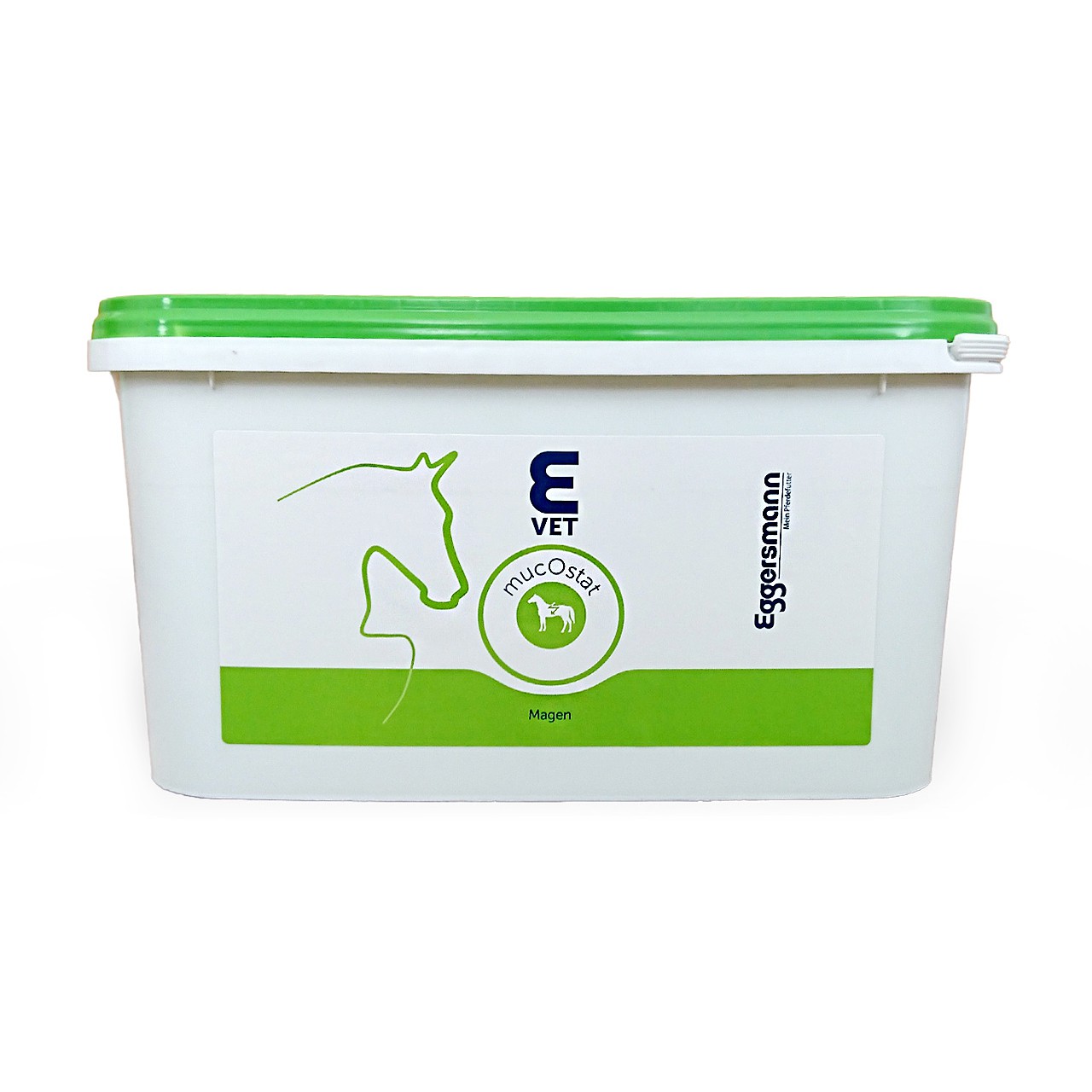Ergänzungsfuttermittel für Pferde
Due to changes in husbandry and feeding conditions, diseases of the gastrointestinal tract are among the most common indications in veterinary practices.
The reasons are manifold: too much stress, too much grain for too little work, too little or bad rough fodder. This has, among other treatments, led to an excessive, prophylactic use of omeprazole supplements in stressed patients. However, since these products are basically only absorbed via the small intestine, the administration is, in many cases not at all helpful or completely unhelpful, because in most gastric patients, the intestinal flora is significantly impaired.
The goal in the development of the mucOstat was to prepare the entire digestive system of the horse optimally for the treatment recommended by the veterinary surgeon. Similarly, a feeding-related alternative for stress-related stomach problems should be found. Feeding trials in well-known clinics confirmed the relevance of such a solution.
The basis of E VET mucOstat are expanded soybeans, they form an optimal basis for a stomach-friendly administration. The integrated lignocellulose can bind the excess gastric acid.
As a rule, next to the stomach mucOstat also contains secondary substances in the intestine, which in particular can have a bowel stabilising / regenerating effect. Here, the topinambour concentrate is particularly relevant; a concentrated probiotic that can sustainably stabilise the intestinal flora. The inulin contained therein serves as an excellent food source for bifidobacteria and therefore supports the intestinal flora. The pectins contained in the fruit pomace additionally provide a stimulating effect on the intestinal peristalsis.
The benefits at a glance:
- to help with stomach problems
- to help with indigestion
- proactive alternative for stress patients
- to support the better absorbability of active ingredients
- contains Jerusalem artichoke concentrate and feather poppy extract
- lignocelluloses may contribute to the binding of excess stomach acid
- pectins from fruit pomace can stimulate intestinal peristalsis
- high acceptance even with finicky horses
Digestible protein (dCP): 313,6 g/kg preceacal digestible protein (pcvRp): 225,1 g/kg Digestible energy (MJ DE): 10,5 MJ DE/kg Metabolizable energy (MJ ME): 7,5 MJ ME/kg
| garais ekstraguotos rupios sojos pupelės | |
| vaisių gabaliukai (oboulių) | |
| kalcio karbonatas | |
| Lignoceliuliozė | |
| Jerusalem artichoke | |
| Bockshornkleesamen | |
| Green meal mixed |
| neapdoroti baltymai | 35,00 % |
| neapdoroti riebalai | 1,40 % |
| džiovinti vandens augalai | 7,40 % |
| neapdoroti mineralai | 13,20 % |
| kalcis | 3,20 % |
| fosforas | 0,70 % |
| natris | 0,02 % |
| Propionsäure aus Calciumpropionat (1a282) TA | 2.381 mg |
NA = Nutritional additives
ZA = Zootechnical additives
TA = Technological additives
SA = Sensory additives
















